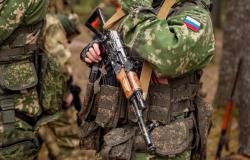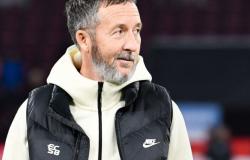
President Klaus Iohannis claims that he has no intention of withdrawing from the race for the headship of NATO, in which he is alongside the Prime Minister of the Netherlands, and that he is not even negotiating for another position at the European level. He made these statements on Wednesday evening, in a press conference held alongside the President of the European Council, Charles Michel.
Klaus Iohannis and Charles MichelPhoto: Presidency.ro
- Consensus is needed to obtain the position of Secretary General of NATO, the vote presupposing unanimity. The mandate of the current Secretary General of NATO, Jens Stoltenberg, already extended twice, ends in October.
Iohannis received the president of the European Council, Charles Michel, in Cotroceni on Wednesday. On Wednesday evening, Iohannis will also receive in Cotroceni the prime ministers of Hungary, Viktor Orban, Belgium, Alexander De Croo, and Croatia, Andrej Plenkovic, for a working meeting “dedicated to the preparation of the future Strategic Agenda of the European Union”, according to the Presidential Administration.
Klaus Iohannis said, in a joint statement with the President of the European Council, Charles Michel, that he will not withdraw from the race for the post of NATO Secretary General.
- “I neither intend to withdraw nor negotiate anything else. I focus on NATO.
- And yes, there are some statements in the public space.
- In the future, I consider that my chances are reasonable”, said the head of state, when asked if he is considering withdrawing from the race for NATO leadership or negotiating another position at the European level, given that the Dutch prime minister is supported by some of the most powerful states.
Also questioned if he sees Iohannis as his successor and if he credits him with chances for a position at European level, Charles Michel avoided an answer:
- “First of all, I was telling you that Mr. Iohannis already has a very important role in the European Council. It helps a lot to build bridges between the member countries and I express, in this way, my gratitude for the role it has played so far in the European Council.
- But, again unsurprisingly, the issue of NATO is not one in which I can pronounce. There will be some elections and the leaders will pronounce themselves”.
We remind you that on March 12, Klaus Iohannis announced his candidacy for the headship of NATO in a specially convened press conference in Bucharest. This, in the context in which Mark Rutte was considered the favorite for the position of Secretary General of NATO. The United States, Britain and France had announced on February 22 that they were backing the Dutch prime minister to succeed Jens Stoltenberg as NATO secretary general, a signal that puts the Dutch politician in a strong position to get the job , Reuters wrote.
At the time Iohannis made the announcement, at least 20 of the 32 NATO members, including the most important Western members – the USA, Great Britain, France and Germany -, had announced their support for the Dutch prime minister.
The US reaffirms its “full support” for the candidacy of Mark Rutte to head NATO
On Tuesday, the United States reaffirmed its support for the Dutch prime minister.
NATO is in full process of debating and seeking consensus on the name of the next Secretary General of the North Atlantic Alliance, but Washington’s position is that it fully supports the current Dutch Prime Minister Mark Rutte for this position, he said on Tuesday, in -a press briefing in Brussels, US ambassador to NATO, Julianne Smith.
She wanted to emphasize that Washington also has “the greatest respect” for Klaus Iohannis, whom she described as a friend.
“I think you are aware that the US position is that we fully support Mark Rutte as the next Secretary General, but we also have the greatest respect for our friend, President Iohannis, and we appreciate that he entered the race and we wish him all the best good, while we continue to debate this issue (election of the future secretary general – no) within the Alliance”, said Julianne Smith, quoted by news.ro.
She emphasized that currently the ambassadors of the 32 NATO member countries are discussing and debating the arguments for and against the two candidates.
“We, all 32 ambassadors here, from NATO, are in the midst of searching for potential successors (for the current Secretary General Jens Stoltenberg – no). And there are two official candidates, as you know. We have Mark Rutte from the Netherlands and President Iohannis from Romania. There is an ongoing debate within the Alliance regarding the qualifications of these two very impressive leaders and we will continue to debate the pros and cons of these two individuals until we reach a consensus on one of them,” the ambassador said.
Julianne Smith added that she “hopes” that in the coming weeks a consensus will be reached, but specified that it is not known what the exact moment will be.
Who is Mark Rutte, Iohannis’ counter-candidate for NATO leadership?
Mark Rutte, with whom President Klaus Iohannis officially entered the competition for the post of NATO Secretary General, is the longest-serving prime minister in the history of the Netherlands and is currently serving as interim as negotiations for the formation of a governing coalition are blocked in the Netherlands since November, when the Freedom Party led by Geert Wilders won a shock victory in the parliamentary elections, but without a clear majority.
Depending on the outcome of the US presidential election in November, the next NATO secretary general could be put in a position to manage a second term for former Republican President Donald Trump, who recently cast doubt on the US commitment to come to the aid of allies who do not allocate 2% of GDP to defense. His remarks at an election rally caused consternation among European allies and were strongly denounced by some leaders in Europe.
But Rutte, who was already seen as the favorite to become the new head of the alliance since last year, recently said that Europe “should stop whining and whining and being nagging” about Trump and instead focus on what she can do for Ukraine. “We have to work with whoever is on the dance floor,” he said during the Munich Security Conference.
Rutte, the longest-serving prime minister in Dutch history, unexpectedly announced last July that he would retire from politics but remains in the interim role as Dutch parties fail to form a governing coalition after parliamentary elections in November were won by the Freedom Party led by Geert Wilders.
How the Secretary General of NATO is chosen
The NATO Secretary General is a high-ranking (civilian) political figure from a NATO member country, appointed by member states for a four-year term. The selection is made through informal diplomatic consultations between member countries, which propose candidates for the post.
No decision is confirmed until consensus is reached on a single candidate. The position has traditionally been held by a senior European political figure.
The Secretary General of NATO, Jens Stoltenberg, has categorically ruled out remaining at the head of the Alliance after October of this year, when his mandate expires, given that his mandate has already been extended due to the outbreak of the war in Ukraine.
Tags: VIDEO Iohannis asked withdrawing race NATO leadership intend withdraw negotiate statements European Council received Cotroceni
-




